"I
am de invisible man!" Bob Welch once quipped, shortly after he was
weirdly excluded from Fleetwood Mac's induction into the Rock & Roll
Hall of Fame.
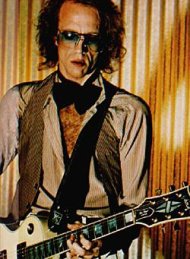
Bob WelchIndeed, Mystery to Me, the title of one of the Mac albums on which he served as frontman, is a phrase that could sum up how Welch is remembered by many of the supergroup's more casual fans, even as news of his apparent suicide rocked the music world Thursday. He was Fleetwood Mac's principle singer and songwriter for five well-regarded albums released over a period of three and a half years in the early 1970s. But between the all-consuming popularity of the members who replaced him and the drug problems that turned him into a recluse after a handful of solo hits, his role in rock history was quickly eclipsed, to the point where his being left out of the Hall of Fame wasn't nearly as controversial as it should've been.
Welch's role in Fleetwood Mac might best be encapsulated in two words: "transitional figure." Which may account for the confusion non-buffs have when it comes to placing his five-year service to the group in history. You can't peg him to the veteran group's original blues sound or later years of superstardom. Instead, he helped pave the bridge in-between.
Mac was "making the change from straight blues to the more harmony vocal type sound when I was in the band," he said in a 1999 interview. "In fact, I think I helped them do that." Notably, he was the first American hired to be a frontman for the once quintessentially British band as they consciously considered a more commercial direction. "I think my contribution to Fleetwood Mac, looking back, is that I helped them redefine their sound after they had lost their founding member (Peter Green). And, I helped them survive, as a working band, long enough to get to L.A.(from Britain). It was my suggestion that we move there"—where, after he quit, they hired Lindsey Buckingham and Stevie Nicks to replace him, and the rest is history.
Welch deserves credit for a lot more than being a way-paver for Buckingham/Nicks, though. Some of his songs he wrote and sang on the five albums released during his 1971-74 with the group, like "Hypnotized," were such FM staples that Buckingham was obligated to keep performing them after Welch quit... just as Welch had had to keep singing Peter Green songs like "Oh Well" when he joined the group.
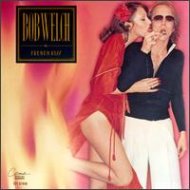
"French Kiss" album coverBut Welch remains best-remembered for a song that both was and wasn't a Fleetwood Mac tune: "Sentimental Lady." He originally wrote and sang it in 1972 on his second album with FM, Bare Trees, with fellow Mac member Christine McVie on backing vocals. That version had zero impact, and its softness might even have seemed an affront to fans of the band's waning blues sound. But when he re-recorded it as a solo artist in 1977, it zipped to No. 8 on the Billboard chart. It didn't hurt, of course, that this new version was produced by none other than his replacement in Fleetwood Mac, Buckingham, and again featured a now-famous McVie on a prominent backing vocal part.
"Sentimental Lady" isn't just well remembered by those who get all sentimental at the thought of super-soft rock. It's been covered by Autumn Defense, the side project of Wilco members John Stirratt and Patrick Sansone of Wilco, as you can see in this live video:
Welch was named the best new artist of 1978 by Billboard. And the album that contained "Sentimental Lady," French Kiss, with its memorably sexy cover, went platinum. His followup album, 1979's Three Hearts, made the top 20 and was certified gold. But after that, sales and hits dropped off precipitously and Welch stopped recording in 1983.
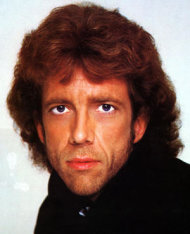
WelchExcept for the brief chatter around the Hall of Fame snub,the general public didn't really hear from or about Welch until his death this week at age 65. Eventually, it became hard for some to distinguish him from other solo artists who briefly benefitted from the studio largess of Buckingham/Nicks in the late '70s, like Walter Egan and John Stewart.
What happened during those last 40 years of being off the radar?
When he moved from Capitol to RCA in the early '80s, he attributed his commercial drop-off to his new label, wary of anyone associated with "dinosaur rock" in the new-wave years, forcing him into a sound and image that weren't really him. But he soon had bigger problems than that.
"The late '80s was a tale of woe for me," he said in a Q&A session on a Fleetwood Mac fansite. "After Eye Contact I kind of went on the skids. Guns N' Roses were rehearsing in my garage, and I was being a very bad boy, very decadent, very cynical, VERY stoned. It was not a good time... I was in a coma at Cedars Sinai in L.A. from heroin abuse, and six months after I recovered from that, I got busted for possession. I was smart enough to see the writing on the wall and changed all my friends," he added. "It's a common enough story, but it's still not easy, especially if you've done it to yourself!"
Eventually he moved to Nashville with his wife, Wendy Armistead Welch. He never toured after 1990, although he did start releasing albums again in the late '90s, including two releases in the last 10 years in which he re-recorded some of his old FM and solo material along with a sprinkling of new songs.
His personal website reveals that he had a strong interest in conspiracy theories in general and UFOlogy in particular. It includes a copy of a letter he wrote to CNN's Anderson Cooper which begins, "Would you dare to tackle the story of how 'zero point' so-called 'free' energy has been hijacked by extra-governmental black ops programs for over 50 years?"
But of course fans wanted to hear less about governmental cover-ups and more about Fleetwood Mac's alleged cover-up of his legacy with the band.
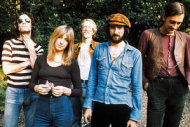
Vintage MacInterestingly enough, he left FM on good terms, and Mick Fleetwood continued to manage him, for a time. He even opened up for his former group throughout the late '70s. "My favorite moment with FM was probably after I had actually left the band, when Mick was my manager and I was opening up big outdoor shows for them... French Kiss was a hit, Rumours was a hit and we were all on top of the world and could do no wrong—we thought!" he wrote, adding a smiley emoticon for ironic emphasis. "A lot of times, when I was on tour opening up on FM shows, Stevie would come up and do 'Ebony Eyes' with me, just for fun."
You can see a reunion of most of the Welch-era lineup of Fleetwood Mac in this video clip of "Hypnotized," a Mac classic that he revived in his solo shows:
But in 1994, he sued the group over royalties, and that estranged him from Fleetwood, Christine McVie, and John McVie, he said, although he continued to be friendly with Buckingham and (especially) Nicks.
When it came to the Hall of Fame snub a few years later, Welch alternated between blaming Mick Fleetwood for having him blackballed and blaming the Hall of Fame itself.
"My being left out of the Hall Of Fame thing was purely political," he once wrote. "I inquired, politely, about my being left out, and was told that the board didn't feel that my years with Fleetwood Mac 'were up to their standards' for inclusion in the induction... They would not tell me, either, exactly what those 'standards' were... And in Mick's book he says, 'Bob Welch saved Fleetwood Mac,' and they STILL left me out?"
In 2003, after years of saying he never expected to speak with Fleetwood again, they did meet up after a show and make some amends, at which point Welch stopped blaming the drummer/manager for purposely blackballing him from the Hall and shifted his contempt toward HOF big-wigs like Seymour Stein. It remains a sore point as Hall watchers continue to wonder how decisions are made on shape-shifting groups like the Red Hot Chili Peppers.
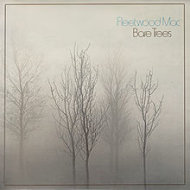
"Bare Trees"Of course, no group has ever shifted shape quite as often or dramatically as Fleetwood Mac. And even the later members agree that without Welch to provide a change of direction, there would have been no Rumours, no Nicks, no nothing later on. Even without that later evolution, though, the mid-period albums featuring Welch like Future Games are their own reward... and a reason to be sentimental, gentlemen.
No comments:
Post a Comment